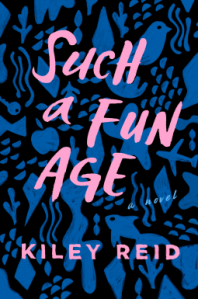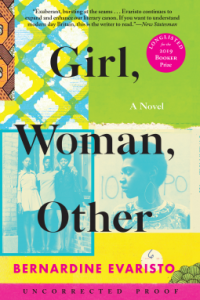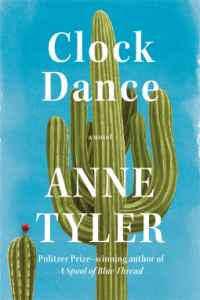
When wizard Drum Billet is about to die, he finds a newborn to follow his steps. Yet, there is a slight mistake, it is not the eighth son of an eighth son, but a girl. The midwife and witch Granny Weatherwax knows immediately what this will mean, Eskarina would become the first female wizard. Except for the fact that there is no such thing as a female wizard. Years go by but ultimately, her family cannot ignore her fate. So quite naturally, she will have to be trained, and therefore Esk and Granny make their way to the Unseen University.
“If you were a boy I’d say are you going to seek your fortune?“
„Can’t girls seek their fortune?“
„I think they’re supposed to seek a boy with a fortune.”
Terry Pratchett’s Discworld has lost nothing of its appeal after all these years. “Equal Rites” was first published in 1987 and is the third novel in the series. The title is a wordplay on equal rights of course, the main topic of the novel and – quite distressingly – not much has changed since then. Old institutions which still refuse women on the basis of the fact that they have never been allowed there, are still a reality. With impressive irony, the author puts the finger in the wound and yet, the effects seem to be weak.
“It is well known that a vital ingredient of success is not knowing that what you’re attempting can’t be done. A person ignorant of the possibility of failure can be a half-brick in the path of the bicycle of history.”
Esk is a wonderfully stubborn girl who finds her way into a male world. She possesses a natural force and cannot easily be stopped. Luckily, Granny is by her side to guide her and to make up for some foolish steps. She, too, is a great and lovable character. Even though she somehow accepts that women are witches and men wizards, she does not take male magic too seriously, she knows about the fuss they make with words and their weakness. She is a great representative of those women who have seen through the male facade and know how to work their way around big egos.
“I saved a man’s life once,“ said Granny. „Special medicine, twice a day. Boiled water with a bit of berry juice in it. Told him I’d bought it from the dwarves. That’s the biggest part of doct’rin, really. Most people’ll get over most things if they put their minds to it, you just have to give them an interest.”
It is most of all the little details that Pratchett has paid so much attention to that make the series an outstanding read. The puns are wonderful and the brilliant irony with which he caricatures the real world made me laugh out loud more than once. Reading it from a feminist point of view, the novel is as current as it might ever be.




